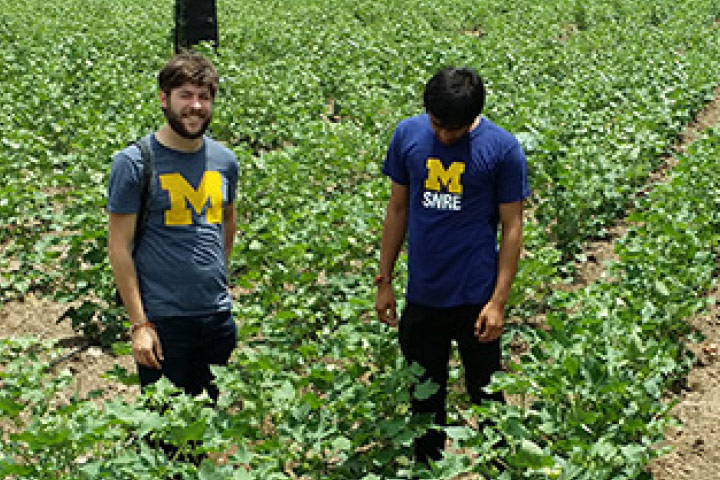De-silting Minor Irrigation Ponds in South India: The Sustainability of Decentralized Resource Distribution
De-silting Minor Irrigation Ponds in South India: The Sustainability of Decentralized Resource Distribution
De-silting Minor Irrigation Ponds in South India: The Sustainability of Decentralized Resource Distribution
Program: Dow Sustainability Fellows Program
Program details » | All Dow Sustainability Fellows Program projects »

(Dow Fellows Program 2015)
Minor irrigation ponds are man-made banked earth structures that have been used for centuries to store rainwater in the region of Telangana, India. To maintain their storage capacity, ponds have to be periodically de-silted. This is traditionally done in the dry season when the ponds are dry. Our team analyzed if harvesting silt could provide a direct source of employment as well as serve as a potential replacement for artificial fertilizers in Telangana’s farming matrix. The goal of the study was twofold: to more fully understand the effects of de-silting ponds on agricultural, hydrological, health, and economic systems in South India, and to advise policymakers on the sustainable use of this local resource. Findings from technical reports (completed before the site visit) and preliminary analysis of our interviews (conducted during the site visit) strongly suggest that de-siltation, when integrated into standard agricultural practices, has positive impacts on the health and economic status of local farmers as well as the environment. Further surveying is needed to clarify the impacts of de-siltation on the region and the local communities